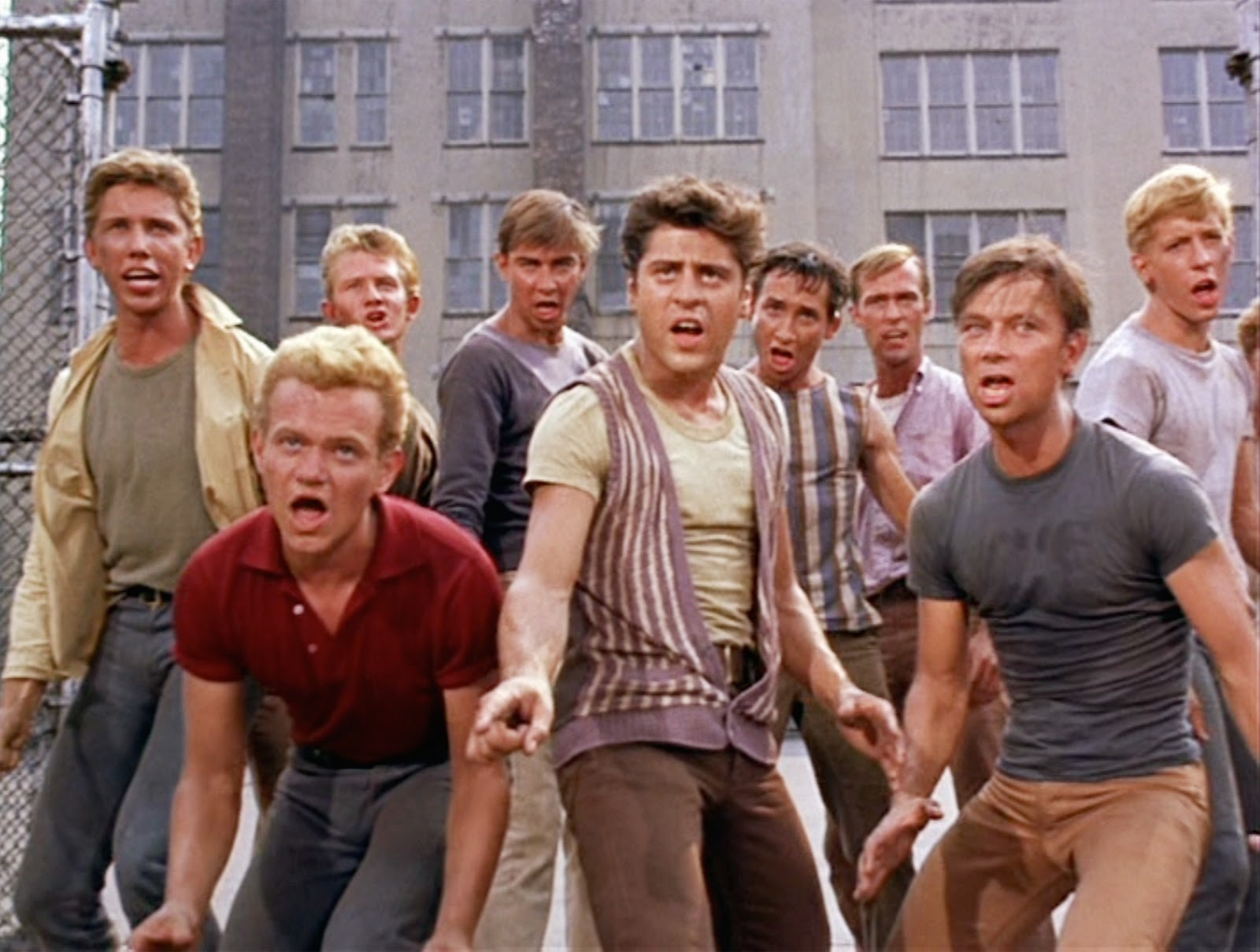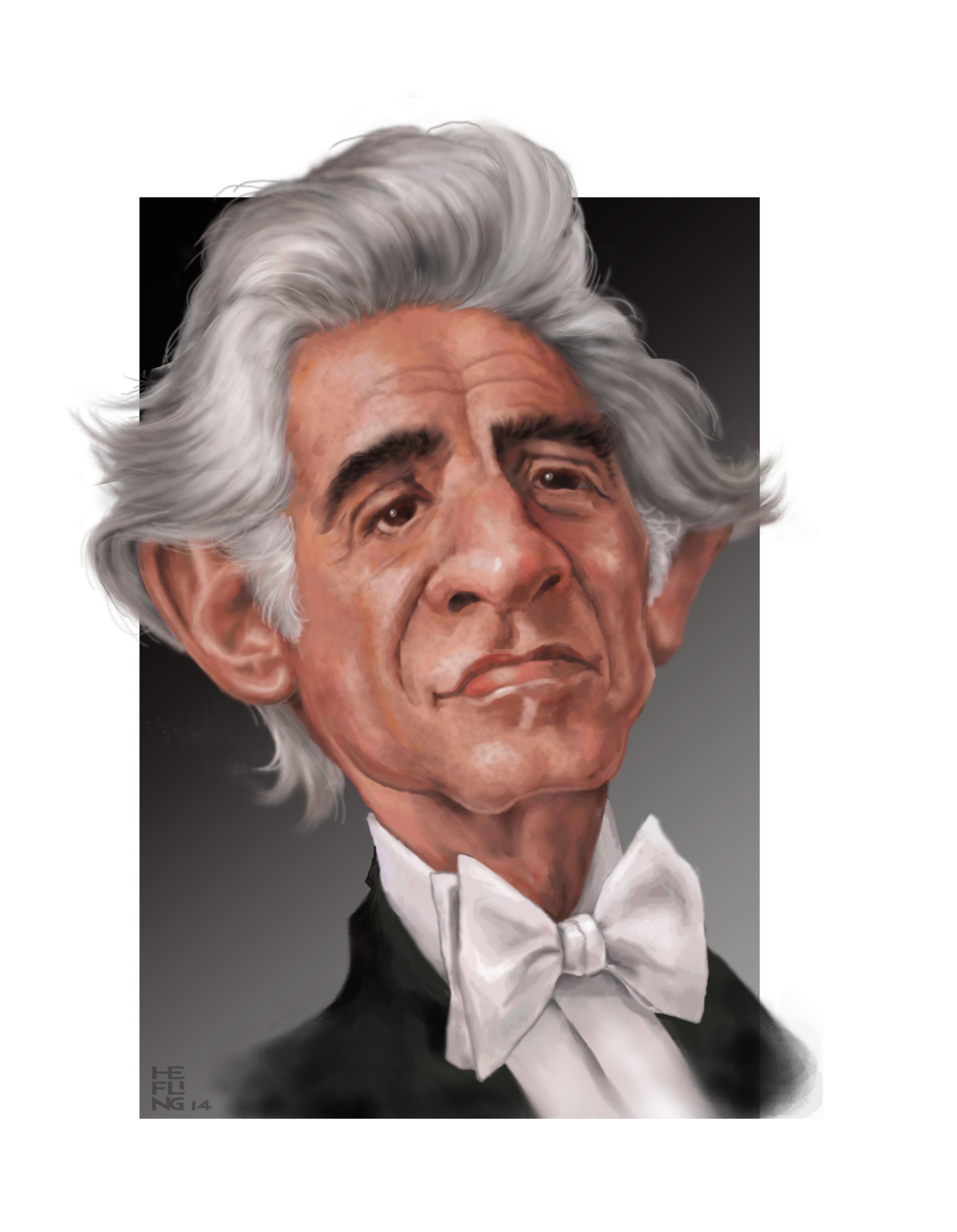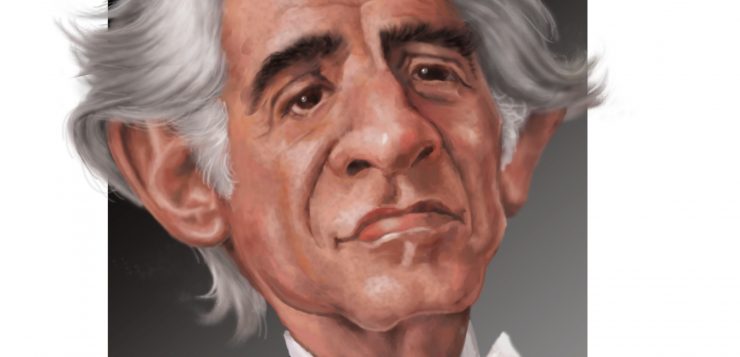THE MUSIC AND LIFE of Leonard Bernstein are being celebrated around the world this year as we observe the centennial of his birth on August 25, 1918. Music lovers are being treated to thousands of classical concerts, talks about his career, screenings of the film West Side Story, and stage revivals of his Broadway musicals, such as On the Town and Candide. The scope of the celebration is due to Bernstein’s unique role in American music as a composer who spanned the worlds of Broadway and classical music, infusing symphonic richness into musicals and a modern sensibility into the concert hall, and leaving a lasting legacy in both art forms.
On top of this fifty-year career in music, Bernstein was intermittently active politically, supporting leftist causes in the 1940s and personifying “radical chic” in the ’60s. He was blacklisted by CBS Radio and Television in 1950, targeted for scrutiny by the FBI during the Eisenhower years, and viewed as an “enemy” by the Nixon administration. But probably the greatest threat he posed to the status quo was his homosexuality. From the time of his arrival in New York City in 1942, he’d had a series of affairs with men. Being openly gay was not an option in that era, but he was remarkably honest with many of his closest friends, including the composer Aaron Copland, with whom he enjoyed a brief affair which served as a prelude to their lifelong friendship.
The social persecution that nearly wrecked a brilliant career did not have the effect of inhibiting his creative genius. His greatest, all-consuming love was for music, and sexuality was an ongoing source of inspiration. Many of his Broadway musicals are thematically pioneering and brimming with gay subtexts. His classical compositions are nearly always programmatic, telling a story or evoking images of nature or people. His journey to personal and public honesty took decades, but along the way his sexual desires served as a muse.
On the Town
Bernstein’s first Broadway hit was the musical On the Town, which premiered in New York on December 28, 1944, the first of his history-making creative partnerships with Jerome Robbins, a brilliant young choreographer who was also gay. The story centers around three sailors on 24-hour leave in New York City during World War II. It was inspired by the Robbins–Bernstein classical ballet Fancy Free, which in turn was based on Paul Cadmus’ painting The Fleet’s In. The overt homoeroticism of Cadmus’ work remains a driving, however sublimated, impulse in On the Town.
During the 1940s, New York was a haven for gay men and lesbians from all over the U.S. While composing On the Town, Bernstein was in his mid-twenties and living alone in the city, having left his family and his home state of Massachusetts behind. He enjoyed not only sexual relationships but many romantic affairs with other men during this period. In a letter to Copland in April 1943, he wrote: “And I have a wonderful guy to live with—which is quite a story. He’s … the big, beautiful brilliant 20-year-old … & I want to help him (but how can a poet earn a living?)” Bernstein blotted out the identity of the male lover who occupied his heart for a time, but despite his caution in an atmosphere in which arrest was an ongoing threat, he leaves no doubt about the nature of his relationship with this man.
On the Town captures the composer’s youthful spirit of sexual liberation. Created through a close collaboration with lyricists Betty Comden and Adolph Green, the musical is on the surface a celebration of the heterosexual longings of three sailors named Gabey, Ozzie, and Chip. But many of the songs are infused with a gay subtext that is by turns humorous and poignant. The hilarious song “I Can Cook Too,” sung by the taxi driver Hildy as she seduces the innocent, sexually ambivalent Chip, is a woman’s pæan to sexual liberation in the 1940s:
My sugar’s the sweetest around.
I’m a man’s ideal of a perfect meal
Right down to the demitasse.
I’m a pot of joy for a hungry boy,
Baby, I’m cooking with gas!
On top of its message to American women, the song also spoke to gay men, who—like Bernstein and Robbins—found in the vast metropolis a chance to connect with others like themselves.
The most memorable song in the score is written in a very different tone. “Some Other Time” is a moving ballad in which several sets of lovers sing about both the precious and fleeting aspects of love, and the inevitability of hostile forces separating two lovers:
Can’t satisfy my craving
Never have watched you while you’re shaving
Oh, well, we’ll catch up
Some other time.
Just when the fun’s beginning,
Comes the final inning.
“Some Other Time” was added late in the creative process, while the show was being workshopped in Boston before heading to New York. According to Adam Green, Adolph Green’s son, it was “rehearsed at midnight in a music store window overlooking the snow-covered Boston Common.” Betty Comden strongly identified with the wistfulness and sense of separation, because her husband was in combat at the time. For Bernstein, the song “Some Other Time” resonated with a sadness that transcended the war. Ironically, the success of On the Town and the fame he acquired as a guest conductor with many American orchestras are what compelled him to put aside his dream of living openly with another man.
Symphony No. 2: A Tribute to Auden
Having majored in music at Harvard, Bernstein also studied literature and philosophy, and he used great literary works as inspiration for his musical compositions throughout his career, especially when they featured gay characters and themes. For example, he became enchanted with W. H. Auden’s book-length poem The Age of Anxiety in the summer of 1947, and it eventually found its way into his work. Auden had been writing openly about his love for men for many years, in poems such as “Lullaby,” first published in 1937. By the 1940s he had emigrated to America and fallen passionately in love with a young man named Chester Kallman, who would remain his partner for the rest of his life. Two of the main characters in The Age of Anxiety, which won the Pulitzer Prize for Poetry in 1948, are autobiographical. Malin, an officer in the Royal Canadian Air Force, finds himself smitten with the charms of a twenty-something Navy man named Emble, who is handsome, charming, and clearly modeled on Chester Kallman.
Bernstein’s determination to pay tribute to Auden’s poem is indicated by the full title of his symphony: The Age of Anxiety, Symphony No. 2 for Piano and Orchestra (after W. H. Auden).This very public homage to a famous poet increasingly known to be a gay man was very courageous on Bernstein’s part. Allen Shawn, the author of Leonard Bernstein: An American Musician (2014), writes: “While his homosexual side may not have been public knowledge, his confessional temperament was surely at odds with concealing it.” Symphony No. 2 was a very public and creative movement toward sexual and personal honesty.
Bernstein further clarified his programmatic intentions in a lengthy essay that was attached to the published score, where he explains in detail how each section of his symphony is connected with the characters and scenes in Auden’s poem: “I imagine that the conception of a symphony with piano solo emerges from the extremely personal identification of myself with the poem.” The solo piano was particularly significant in that Bernstein was trained as a concert pianist. He goes on to characterize the piano as “an almost autobiographical protagonist.” Symphony No. 2 had its world premiere in Boston on April 8, 1949, with Bernstein’s mentor Serge Koussevitzky conducting the Boston Symphony Orchestra and the composer himself as the piano soloist.
The symphony is musically magnificent as well as intriguing in the multiplicity of connections the composer forges with Auden’s poem. The “Prologue” establishes a melancholy mood as two clarinets engage in a dialogue of shared loneliness. In the first variation, the solo piano, representing both Auden’s characters and Bernstein himself, plays by itself, stark and unembellished, a musical portrait of the existential alienation felt by the composer as a gay man. Despite the recurring sense of anxiety and despair, Symphony No. 2 has many magical moments in which joy is suggested. “Variation IX” is a dazzling, impassioned waltz, a sudden outpouring of romantic feelings.
The late 1940s may have been a last hurrah of sorts for the young Bernstein in terms of sexual expression. Nearing thirty, he was exceedingly handsome, with strong features, abundant, wavy hair, a broad grin, and a taste for stylish clothing. He must have fantasized about a consistently gay life but was fearful of its ramifications for his career.
The Serenade after Plato’s Symposium (1954)
Serenades—the kind of music played at night by lovers under a balcony—have been a very popular musical form, especially for Romantic composers such as Johannes Brahms, Edward Elgar, and Hector Berlioz. It made perfect sense for Leonard Bernstein to compose his own serenade, and the work that emerged fits beautifully into the traditions of his predecessors. What made the piece revolutionary was its source: The Symposium of Plato (written ca. 385–370 BCE). The Symposium is a series of speeches in praise of love, personified by the god Eros. In choosing Plato’s work as his source, Bernstein was shining a light on one of the most famous homoerotic texts in history. Scored for solo violin, harp, string orchestra, and percussion, Bernstein’s Serenadeafter Plato’s Symposium is arguably the composer’s most lyrical and beautifully melodic classical composition.
As with his symphony inspired by Auden, Bernstein took great pains to make clear his Serenade’s connection with Plato. On August 8, 1954, while vacationing on Martha’s Vineyard the day after completing the score, he wrote detailed program notes to serve as guideposts for listeners. He names the five movements of The Serenade after the seven guests who speak in praise of love in Plato’s work (two movements are doubled up).
While composing the Serenade, Bernstein was a newly married man, having finally wed Felicia Montealegre in 1951 after a brief renewal of their engagement. The marriage was in crisis from the start, and some time in late 1951 or 1952 Felicia, who was deeply in love with Bernstein, wrote her husband a frank letter about his sexuality. The most tumultuous passage read as follows: “Second: you are a homosexual and may never change—you don’t admit to the possibility of a double life, but if your peace of mind, your health, your whole nervous system, depend on a certain sexual pattern what can you do?”
By the time of the Serenade, any attempt by Bernstein to remain traditionally monogamous had clearly failed, but their marriage seemed to be calm and loving, and the birth of their daughter Jamie in 1952 brought great happiness to the family. Bernstein’s passionate feelings for men, however, were as strong as ever. The Serenade represented an opportunity, using the medium he loved the most, to reassert the fundamental truth of his own sexual nature.
The first movement, titled “Phaedrus,” begins with the solo violin introducing a theme that is yearning and lyrically tender. The violin plays an autobiographical role throughout the work, similar to the piano in Symphony No. 2. The violin’s melody plays with romantic ardor, singing about the beauty of love in Plato’s world. There is an underlying sadness in many movements of the work alongside the lyricism, as if to express the pain felt when love is thwarted or denied.
It is in the movement titled “Agathon” that Bernstein’s gift for melody reaches its apotheosis. In his program guide Bernstein wrote: “Perhaps the most moving speech of the dialogue, Agathon’s panegyric embraces all aspects of love’s powers, charms and functions.” Agathon was in his time a highly regarded author of tragedies, whose work has unfortunately been lost. In the Symposium, Agathon is depicted as being in a lifelong partnership with Pausanias, another of the men present at the dinner party.
The world premiere of The Serenade after Plato’s Symposiumwas on September 9, 1954, in Venice, with the composer conducting the Israel Philharmonic Orchestra and Isaac Stern, Bernstein’s close friend, featured as the violin soloist. Reviews were curiously mixed; some were even hostile. Reviewers did not attack the connection with Plato, but one senses an underlying bias against the piece. However, with the passage of time, The Serenade has emerged as one of Bernstein’s most admired and frequently performed classical works, and the piece has become a staple in the repertoire of concert violinists such as Joshua Bell.

West Side Story: Unconventional Love
Shakespeare was also a source that fired Bernstein’s imagination, and those of his creative partners, Arthur Laurents and Jerome Robbins, when they first conceived of the musical that eventually became West Side Story. Another rising star was also brought onto the creative team. Wrote Bernstein to his younger brother Burton in October 1955: “Romeo proceeds apace, with a new young lyricist named Steve Sondheim, who is going to work out wonderfully.”
As in Shakespeare’s Romeo and Juliet, Arthur Laurents’ book focuses on the sexual passion between the young lovers, Tony and Maria, who make love soon after they meet, even though they are unmarried and still teenagers—and this is the 1950s. No Broadway musical had ever been so realistic and so defiant of American social mores. Surrounding the lovers are numerous scenes in which a gay subtext flows freely, especially the scenes involving the gang known as the Jets and the relationship between the hero, Tony, and Riff, the man he has lived with for years.
Bernstein’s musical score for West Side Story, like Laurents’ script, also defied musical conventions, incorporating Latin American sounds, jazz, and classical music in an era of atonality. The orchestration featured an intense use of brass and percussion, making the musical experience frequently quite intense and even overwhelming. At the heart of Bernstein’s score, and crucial to his depiction of youthful sexuality, is his recurring use of the musical interval known as the tritone, which consists of three whole steps on the scale. For centuries, the tritone was considered a forbidden musical interval, partly because it was difficult to sing and partly because of the dissonance. Tritones were called the diabolus in musica(“devil in music”).
The most famous use of the tritone in the 20th century is in Bernstein’s song “Maria” inWest Side Story, in which the hero sings rapturously of his sudden passion for the young Hispanic woman he has met at a dance. The tritone sung by Tony possesses an edginess and a sexual intensity. But careful study reveals tritones cropping up in many songs in West Side Story, especially those involving Riff and his gang members, the Jets. The song “Cool” is the most striking example, sung by Riff to a fellow gang member named Action, a tightly wound ball of fury. As with “Maria,” “Cool” kicks off with the musical tritone:
Boy, boy, crazy boy—
Get cool, boy!
Got a rocket in your pocket—
Keep coolly cool, boy!
Don’t get hot,
‘Cause man, you got
Some high times ahead.
In this song Bernstein and Sondheim created a dynamic, erotically charged atmosphere in which homosexuality is a driving, subliminal force. Had this force been expressed openly, one wonders if the violence among the young men might have been averted.
The magnificence of Bernstein’s score has been so universally admired that it’s often forgotten that originally he was the co-lyricist along with Stephen Sondheim. Bernstein decided to remove his own name from the credits by the timeWest Side Story opened at the Winter Garden Theater on September 26, 1957. Arthur Laurents, in his memoir Original Story By, writes of Bernstein: “His ego didn’t get in the way of the most magnanimous act I ever heard of in the theater before or since: he removed his name as co-author of the lyrics because Steve was just beginning his career.”
Bernstein and Sondheim developed an extraordinary intimacy, constantly working alone together during the long gestation period of the musical. Sondheim was sexually repressed, fearful of acknowledging his homosexuality, but nevertheless in awe of Bernstein. The letters that the two men exchanged in the decades following are exceedingly loving in tone, especially on Bernstein’s part. On the occasion of Sondheim’s fiftieth birthday, Bernstein wrote a letter in which he inscribed their two names within a heart that also contained two musical notes, one symbolizing Steve and the other Lenny. The interval between the two notes was, once again, Bernstein’s tritone.
The event that made Bernstein the most famous composer in America was the release of the film version of West Side Story on October 18, 1961. Starring Natalie Wood and Richard Beymer, it was directed by Robert Wise and Jerome Robbins—who was, however, fired by the producers early on in the filming. The movie musical garnered rave reviews and ten Academy Awards, including the Oscar for Best Picture. All over the country people were playing the LP, which topped the charts, while singers advanced their careers with renditions of “Tonight,” “Maria,” and “Somewhere.”
There was some irony in the film’s catapulting Bernstein into the musical stratosphere, given that he had little direct involvement in the actual making of the film. He was disturbed by various changes to his score, to which he was devoted measure by measure. Others involved in the original Broadway production were upset by the removal of some explicit language in the film dialogue.
Seen from today’s vantage point, the film retains the power of the original musical, and its gay subtext is, if anything, enhanced by Robert Wise’s casting decisions. Richard Beymer as Tony, 23 years old, broad-shouldered, and handsome, had made an impression on moviegoers with his sensitive performance as Peter Van Daan in the 1959 film The Diary of Anne Frank. Beymer was singled out for censure, however, by many reviewers of West Side Story. In an otherwise laudatory review in The New York Times, Bosley Crowther derided Beymer’s performance in veiled homophobic terms: “Richard Beymer’s characterization of the boy who meets and loves the girl is a little thin and pretty-pretty.” It could be argued that the supposedly unmasculine qualities that rankled critics in fact enhanced the drama. In his mode of walking, the softness of his face, his vocal mannerisms, Beymer brought a bisexual or gay sensibility to the role, hinting that his attachment to Riff rivaled his love for Maria.
The boldest casting was Tucker Smith as Ice, a role created for the film version. With his gleaming eyes, impish grin, and dirty blond hair, Smith is a magnetic presence in the film. Wise’s camera captures Smith from flattering angles that leave little to the imagination under his form-fitting white pants. The film’s visual attention to Tucker Smith and the other gang members casts a homoerotic aura over the many scenes involving the Jets, steamy bunch that they are. Another highlight is Tucker Smith singing the song “Cool” and leading the Jets in a wildly defiant dance sequence. As an openly gay actor in the early 1960s, Smith was indeed a rarity in Hollywood films. This film should have been the start of something big, but Smith’s refusal to conceal his homosexuality may have doomed his career.
With West Side Story playing on screens around the world, Bernstein became a household name. His fame was enhanced by his connection with another American icon of the era: President John Kennedy, born in 1917, making him only a year older than Bernstein. Both men were brilliant, Harvard-educated, and movie-star handsome. Kennedy’s election was greeted with elation by Bernstein, a vindication of his unwavering liberal principles.
Bernstein composed his Fanfare for the Inauguration of John F. Kennedy, a short work featured at a gala organized for the new president on the eve of his January 20, 1961, inauguration. Americans were enchanted with both Kennedy and Bernstein, who were seen as paragons of American success and leadership in the world and in the arts. Both men, however, possessed sexual secrets, different in nature, disclosure of which could have destroyed their careers.
 Songfest (1977)
Songfest (1977)
An opportunity to communicate a vision of his political beliefs came when Bernstein was commissioned to compose a piece for the U.S. Bicentennial, though the work was not finished on time. Songfest: A Cycle of American Poems for Six Singers and Orchestrapremiered on October 11, 1977, performed by the National Symphony in Washington, D.C. Comprised of twelve songs, Songfest is the composer’s tribute to America’s ethnic, racial, religious, and sexual diversity.
For the piece, Bernstein composed the music and set the text of thirteen poems. Poems in the song cycle include Langston Hughes’ “I, too, Sing America” and Walt Whitman’s “To What You Said.” The latter poem, composed some time between 1857 and 1860, is one of Whitman’s most overtly homoerotic:
Though you have strayed hither, for my sake, you can never
belong to me nor I to you,
Behold the customary loves and friendships—the cold guards,
I am that rough and simple person
I am he who kisses his comrade lightly on the lips at
parting, and I am one who is kissed in return.
In his setting of Whitman, Bernstein sings much more openly of his love for men than ever in the past. Humphrey Burton, who knew Bernstein for thirty years and wrote the definitive biography after his death in 1990, writes of this song: “The words express with uncloying simplicity the tender feeling that one man can have for another: the meltingly beautiful melody, first heard on a solo cello and them hummed by the other five soloists as the solo baritone intones the poem to a descant.”
The composer’s attempt to belong to another man had not had a happy outcome. Increasingly determined to live honestly as a gay man, in 1971 Bernstein fell in love with a 24-year-old man named Tom Cothran, a music director at a California radio station. Years of turmoil followed, during which Bernstein separated from his wife for a time and lived, unsuccessfully, with Cothran.
Felicia Bernstein had been diagnosed with cancer in 1974, and her anger at her husband erupted into bitter scenes. With the failure of his relationship with Cothran as well as with several other men, and with the worsening of his wife’s cancer, Bernstein reconciled with Felicia, nursing her devotedly until her death on Bloomsday (June 16), 1978. Cothran, no longer his lover, remained a friend, and Bernstein visited him in the hospital before he died of AIDS in the 1980s.
Though haunted by guilt after Felicia’s death, Bernstein did not, to his credit, retreat from his coming out process. In the 1980s, the final decade of his life, the combination of his reputation as America’s greatest living composer and the growing public knowledge of his sexuality made a colossal impact, especially in the world of classical music, where gay people were numerous and traditionally closeted.
His personal odyssey as a gay, Jewish man had from the start, from his first fame in the 1940s with On the Town, interacted with his musical genius. Among his abundant musical gifts was his deployment of literary sources such as Plato, Shakespeare, and Auden to provide a musical framework in which he could freely, however subtly, express his sexuality. Whatever setbacks he encountered, wrestling with inner demons while fighting against conservative forces in his environment, in all of his many endeavors Bernstein was always marvelously alive, innovative, and brimming with ideas.
David LaFontaine is a professor at Massasoit Community College, where he teaches in the English Department.





